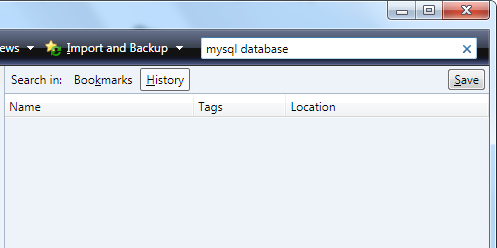There is a huge difference between search engines such as Google and Bing, and the search functionality built into applications such as the history search in browsers. Search engines bring relevant results based on how closely your query matches resources on the web, and while doing that they make guesses, correct spellings and weights hundreds of different parameters.
Non-intelligent search tools, like browser’s history search, are based on exact-match methods. This means that if you’re looking for that “fried blueberry pancake” recipe that you’ve seen before and accidentally remember “fried raspberry pancake,” chances are you’ll get no results because your browser hasn’t seen all the words from your query in one document before.
Mozilla Labs has released a new history search tool called RecallMonkey which enables users to find pages they've visited even if they don't remember exactly what they were named and what was on the page. To use RecallMonkey, simply open it from File > RecallMonkey or press Ctrl+Alt+M and type your query. You don’t have to be very exact, just type whatever words you can remember. The search engine should be able to retrieve the page you're looking for even if it's a partial match.

In the example shown above, RecallMonkey was able to identify the exact page for the search query ‘mysql database’ even though the two words occur nowhere next to each other on the given page.
The same query on Firefox’s built-in history search fails to bring any results. It’s easy to see how tremendously powerful RecallMonkey is over the regular history search.

In RecallMonkey you can also filter by time and “pin” websites if you know which website the page you're looking for is but you don't know exactly which one. For example, you remember that article on water was on Quora, so you can pin Quora (by clicking on its domain name) while searching to prioritize its results. You can pin up multiple sites at the same time.
RecallMonkey is a must have add-on for anyone who regularly access the history pages.
Related:
- Voyage – A fantastic way to browse history in Firefox
- Firefox extension about:me – Browser usage statistics in graphs
- 9 Firefox add-ons to cover your dirty browsing tracks
- Track all your browsing history at one place with hooeey

Comments
Post a Comment